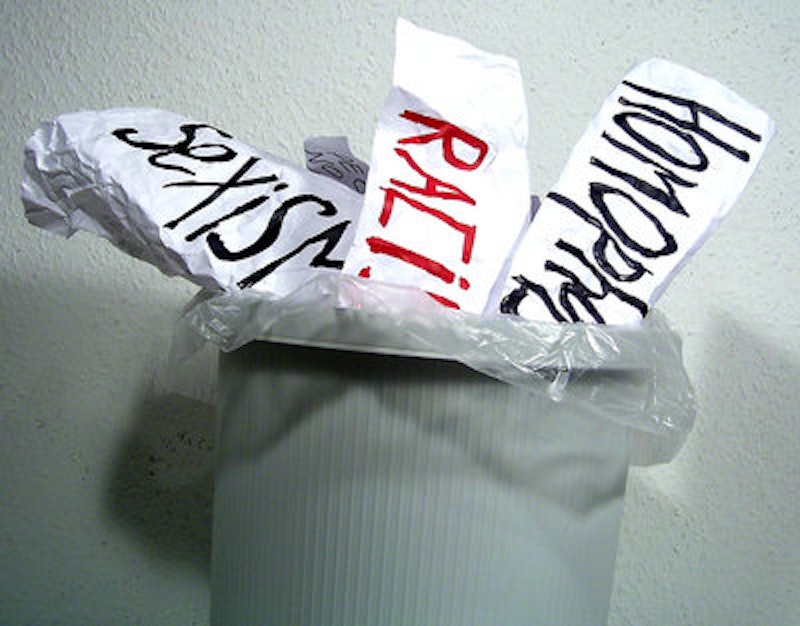It is less and less acceptable to be a bigoted homophobic ass in public. Most Americans now support gay marriage; enough so that politicians like Barack Obama figure they gain more votes by supporting it. Public figures who make ignorant and prejudiced remarks about gays now face serious negative publicity. This isn't to say that gays are no longer discriminated against, because they are. But the discrimination today has to hide its face, at least a little.
Nathaniel Frank, writing at Slate, is not pleased by this development. Frank correctly notes that Christians (including the Pope) who hate gays have tried to come up with some acceptable way to say that they hate gays without actually coming out and saying it. The most recent tactic, he says, is for anti-gay Christians to claim they dislike the sin of homosexuality, but nonetheless "respect" gay people. "A new breed of social conservatives, ground down by political correctness and the sense that the world is moving on without them, seem to want to have their cake and eat it too—and we’re letting them get away with it," Frank argues. He points out that if you think homosexuality is a sin, then it follows that you can't really respect people who are homosexual, and who build their lives around forming homosexual relationships and families. He concludes that if you respect gay people, you should get over your homophobia, and if you want to remain homophobic, then you need to stop shilly-shallying and admit you hate all those gay people. Or, as he puts it, "Please stop saying you respect us (much less everyone), and take responsibility for what you really believe."
I get where Frank is coming from. Hypocrisy is an especially infuriating sin (and certainly one about which Jesus had some harsh things to say.) Sniveling and condescending shirkers are often a lot more repulsive than forthright enemies. At least if someone's willing to say, "I hate you," then you know where you stand. A slimy, "Well, I love you, but…" doesn't mean that your opponent's on your side; it just means he or she is sneaking around to stab you in the back.
Still, the fact that they need to sneak is not entirely bad. "Hypocrisy is the compliment vice pays to virtue," as the saying goes. People want to be able to say they respect gay people because, again, it's no longer acceptable to simply hate gay people. It’s embarrassing to be a homophobe; it's socially unacceptable. And that's important, because prejudice and discrimination are, in a lot of ways, less a matter of hate what you feel in your heart than they are a matter of etiquette.
Jim Crow in the South, for example, was a pervasive system of social norms about who could eat where, who could drink out of which water fountain, and who could marry whom. You didn't have to hate black people to participate in Jim Crow, you just had to follow the same social rules as your neighbors. Hating back people wasn't a matter of internal conviction; it was a matter of public performance. And while changing that pubic performance didn't (and still hasn't) banish racism, it was still better than the alternative. Racists had to get sneakier. Efforts to keep black people from voting, for example, have become more circuitous and surreptitious, and if some political operative actually brags about plotting to keep blacks from voting, that political operative will get fired. It's not the millennium but it's a step.
Similarly, the fact people no longer feel like they can condemn gay people without caveats is a small sign of progress. Bigots can't just be bigots now; they have to be tricky bigots and hypocrites. Frank's article isn't so much decrying that fact as rubbing their noses in it.

